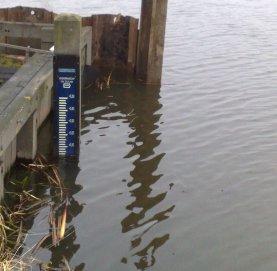

Scholarships in water studies/ research
Feedback 1: 999
999
Feedback 2: 999
999
Feedback 3: 999
999
Feedback 4: 999
999
Feedback 5: 999
999
Feedback 6: 999
999
Feedback 7: 999
999
Feedback 8: 999
999
ECOSYSTEM REFLEXIVITY AND THE EFFECTIVENESS OF MARINE GOVERNANCE (CENTRE FOR MARINE SOCIOECOLOGY)
17 Sep 2017
Offered by: University of Tasmania
Scholarship funds: PhD program
Scholarship description
This PhD project is available through the Centre for Marine Socioecology, an IMAS partnership with CSIRO and the Australian Government.
Supervision Team:
Jeffrey McGee
Julia Blanchard
Marcus Haward
Aysha Fleming, CSIRO
Tony Smith, CSIRO
This PhD project aims to develop and test cutting edge theory for improving the design of institutions for marine governance at an international, regional and/or national scale.
Our current era is considered by many as 'The Anthropocene', which is dominated by human impacts on the Earth's ecosystems pushing us past physical, biological and human limits. The effective management of changes in human activities in the face of extreme events and ecosystem change requires resilience in governance and institutions. Dryzek (2014) therefore recently proposed 'ecosystem reflexivity' as key component of institutions that are required in the Anthropocene. However, to date research on the ecosystem reflexivity of institutions has been primarily theoretical and conceptual and would benefit from further empirical testing.
Adopting a socio-ecological systems perspective and building on methods that have been used for the analysis and modeling of marine ecosystems, this PhD project will develop a framework for exploring Dryzek's recent work on ecosystem reflexivity of environmental institutions for the Anthropocene. The project will combine use of the international environmental regimes database (Breitmeier, Young and Zürn 2006) with in-depth case study analysis of institutions relating to marine governance such as the Convention for the Conservation of Antarctic Living Marine Resources, Agreement on the Conservation of Albatrosses and Petrels or regional fisheries institutions.
The project will combine insights from the above qualitative and quantitative approaches to address the following key questions on the design, operation and effectiveness of institutions for the governance of marine resources and environments in the Anthropocene:
* How might ecosystem reflexivity be measured and used in the design of institutions for marine governance?
* How does ecosystem reflexivity contribute to the effectiveness of institutions for marine governance?
* Does the impact of ecosystem reflexivity on effectiveness change with the scale of the institution involved?
* What are the policy implications of designing for ecosystem reflexivity? What lessons can be learnt from the case-study institutions in this regard?
Scholarship location:Australia
More information (external link to the scholarship website)
Source: UTAS.EDU.AU
Latest shared scholarship
PhD Scholarship - Water managementDate: 12-Jan-2021 Location: Brisbane, QLD, AU Company: CSIRO ....
